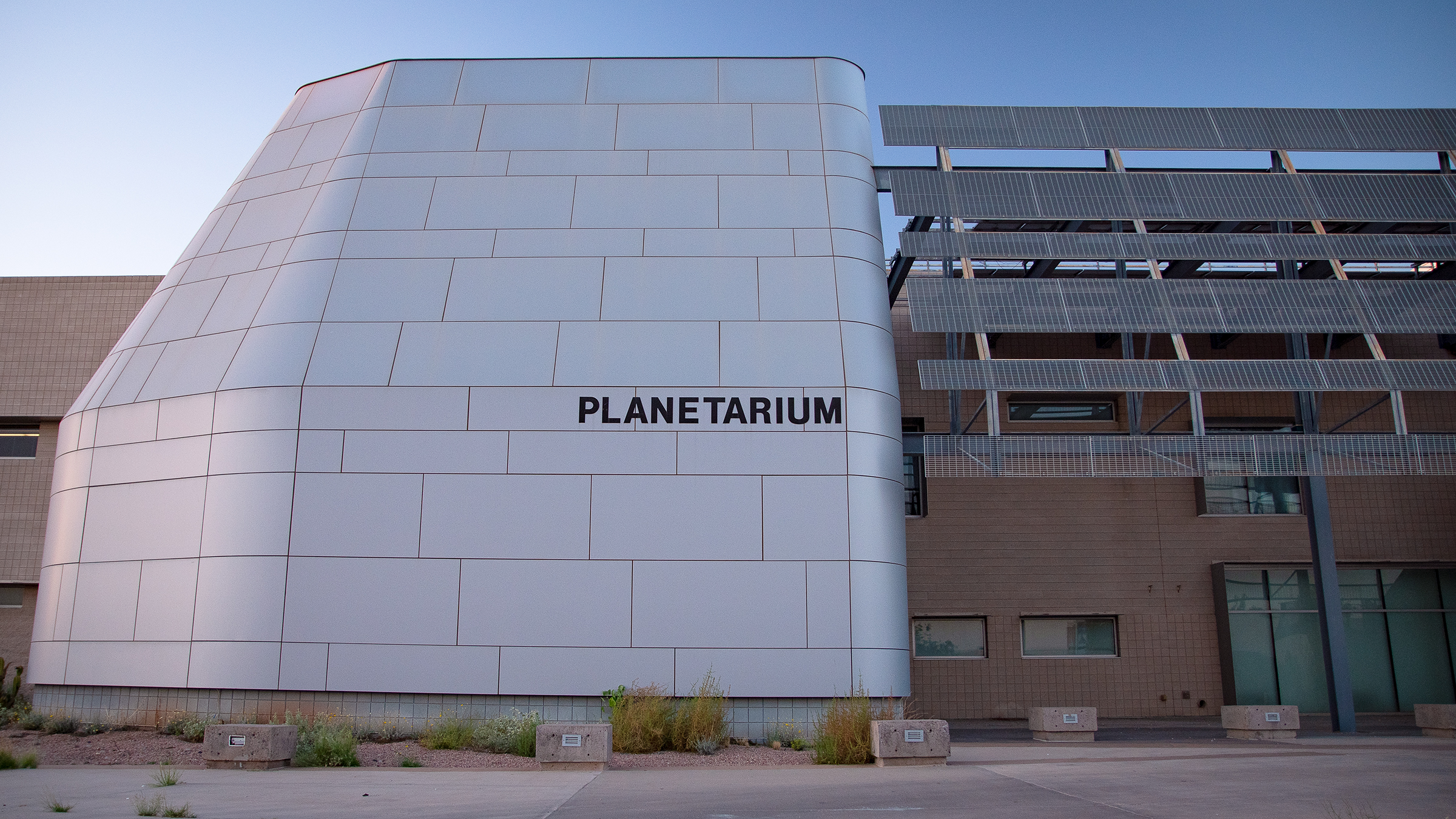SCC hosts forum on Middle East conflicts
Keith Whittemore
Mesa Legend
 On Nov. 2, Scottsdale Community College hosted a lecture and discussion about conflicts in the Middle East. The event was held jointly by the Israel Public Diplomacy Forum, an Israeli educational organization, and GlobalTies Arizona, a local group which hosts international speakers. The main focus of the discussion was a lecture on the history of the religious and political divisions between Sunni and Shia Muslims. The first speaker, Eytan Gilboa, an Israeli professor of political science and communication, gave opening remarks about the general situation in the Middle East. “It’s in a big mess,” Gilboa said. “Everybody’s fighting everybody else, and the purpose of this event will be to understand where it comes from, who is against whom, why, and where the Middle East is going in the future.” According to Gilboa, many of the problems in the region stem from Western ignorance of religion, culture, and history, from the post-WWI colonial era until today.
On Nov. 2, Scottsdale Community College hosted a lecture and discussion about conflicts in the Middle East. The event was held jointly by the Israel Public Diplomacy Forum, an Israeli educational organization, and GlobalTies Arizona, a local group which hosts international speakers. The main focus of the discussion was a lecture on the history of the religious and political divisions between Sunni and Shia Muslims. The first speaker, Eytan Gilboa, an Israeli professor of political science and communication, gave opening remarks about the general situation in the Middle East. “It’s in a big mess,” Gilboa said. “Everybody’s fighting everybody else, and the purpose of this event will be to understand where it comes from, who is against whom, why, and where the Middle East is going in the future.” According to Gilboa, many of the problems in the region stem from Western ignorance of religion, culture, and history, from the post-WWI colonial era until today.
“Many of those borders (in the Middle East) were artificially designed. Britain and France did not take into consideration ethnic or religious movements or groups or sects, and what we see today is pretty much the result of that arbitrary design of borders in the region,” Gilboa said. After Gilboa’s introductory statements, Ely Karmon, a fellow Israeli and a research scholar with several anti-terrorism and strategic think-tanks, took the stage to talk specifically about the history of the Sunni-Shia divide. The divide between Sunnis and Shias, Karmon said, began as a religious dispute over successorship to the prophet Muhammad, but soon became political, with each side claiming to be the sole continuation of true Islam.The result has been that the majority of Muslims today are Sunnis, with Shias remaining predominant only in Iran. Karmon added that, although the divide between Sunnis and Shias has existed since the birth of Islam, violence between the two groups wasn’t apparent until the latter half of this past century.
“We see that today there are these two camps (with) which, until the ‘60s or ‘70s, we didn’t see real violent conflicts, because the Shias indeed were a repressed people,” Karmon said. “In the ‘70s we see a change in Iraq with the regime of Saddam Hussein, who took very serious measures against the Shia majority, who were 60 percent of the Iraqi Arab population.” Since then, Karmon said, Middle Eastern conflicts can mostly be defined along religious lines, with a Shia coalition headed by Iran and a Sunni coalition led by small rebel groups like those in Syria as well as countries such as Turkey and Egypt.After Karmon’s lecture, Gilboa gave closing remarks, in which he criticized the West for its simplistic view of the Middle East. “The impression is that we have bad guys — the Islamic State and those who support them — and then all the other guys are the good guys. This is not really the case,” he said. “The problem is that this distinction is a little bit artificial and has backfired. Given what we’ve just said, the Western responses fail to consider those forces behind the violence and instability.”
“The dilemmas are difficult, but decisions have to be made on how to deal with the threats in the region, because these threats are not going to be confined to the region. They will be exported to the rest of the world, and may even show up in the United States,” he added. Following Gilboa’s comments, a question-and-answer session began, with Israel’s role in the Middle East at the forefront. “Israel has been attempting to stay away from these huge conflicts in the area. It’s not always successful, because some violence is spilling over,” Gilboa said. Karmon agreed, adding that Israel’s actions have been responsible and predictable. “Today Israel intervenes only on two red lines,” he said. “First of all, that the Palestinian regime will not provide strategic weapons — that is, missiles and chemical weapons — to Hezbollah. Second, that Iranian forces and Hezbollah will not build a platform.” Gilboa also reiterated Israel’s opposition to the Iranian nuclear deal, claiming that Iran and its allies were an underestimated threat.
“The Shiite axis, this Russian-Iranian alliance, is not less dangerous, and not less threatening to the West,” he said. “The feeling that, since Iran fights the Islamic State, Iran becomes part of the legitimate, moderate force for stability and peaceful resolution of conflict in the Middle East is the wrong approach.” The Q&A continued with a discussion of the United States’ place in the region, with Gilboa taking the opportunity to chide the Obama administration for its seeming lack of interest. “There is a feeling in the Middle East… that somehow, in recent years, the United States was trying to disengage from the region, and that the United States is not interested anymore in the region, and that if everybody wants to fight everybody else, it’s not your business,” he said. “There has been a lot of disappointment that the United States has deserted its allies. One of the sayings in the Middle East these days is that it has been much better to be an enemy of the United States rather than to be a friend.”This disengagement on the part of the U.S., according to Gilboa, led to Russia’s recent involvement in the region.“A vacuum has been created in the region, and vacuums do not survive for a long time in international politics. “Hence, suddenly Putin becomes the leader, and he is intervening, and he is calling the shots,” he said. “So I think today there is a real problem of a renewal of some kind of a Cold War in the region.”









